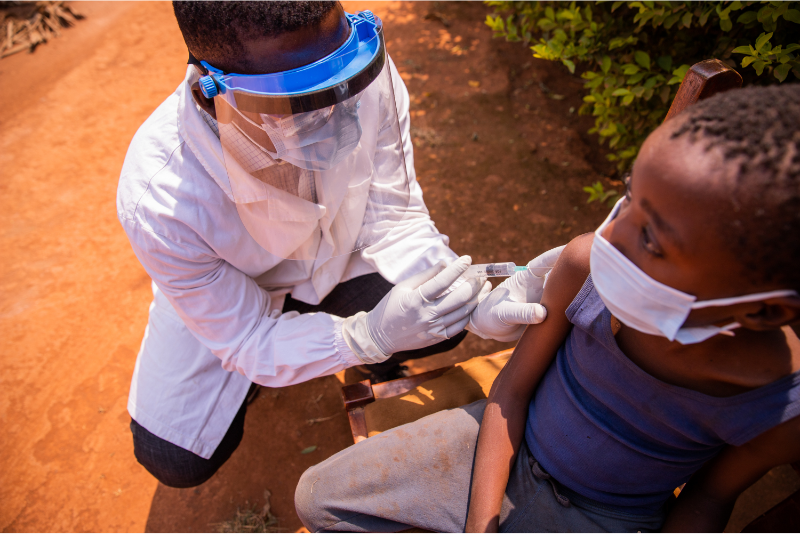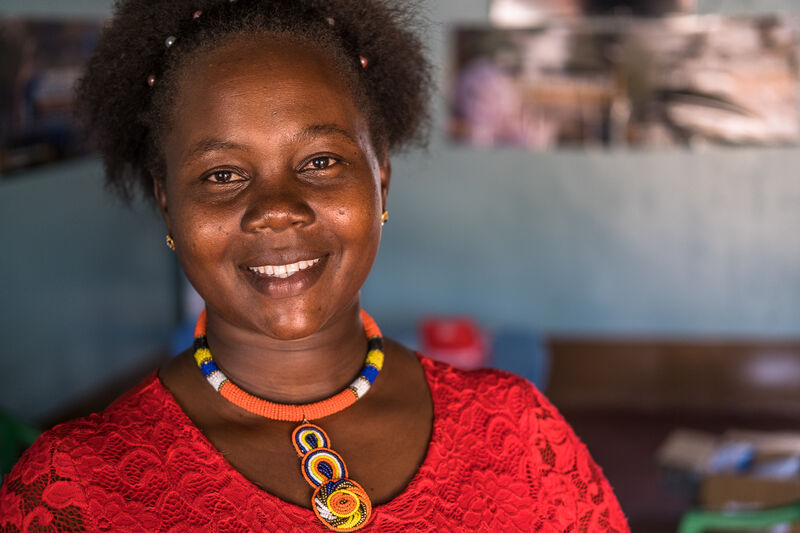

Reflecting on 2023: DSW Kenya Annual Report
The year 2023, marked the beginning of DSW’s new Strategic Plan set to be implemented until 2025. Under the new strategy, DSW Kenya continues its programmatic interventions through six pillars:
- Youth awareness,
- Youth-friendly services including access to modern contraceptives,
- Gender equality,
- Economic empowerment,
- Capacity building, and
- Advocacy for increased, more effective investments in youth and adolescent SRHR.
This annual report presents programmatic results attained from work implemented through 10 projects.
In 2023, 1,045 (324 males, 721 females) trained peer educators reached 73,644 (30,878M, 42772F) young people with SRHR knowledge and information. Of this, 10,156 (3566M, 6590F) young adolescents were reached through school-based peer learning sessions, and 38,541(13,138M, 25,403F) through community-based peer learning sessions. DSW Kenya is proud to have established a relationship with the National Youth Service (NYS) reaching 24,947 (14,168M,10,779F) recruits and servicemen and servicewomen through peer learning sessions conducted in Nairobi, Naivasha, Gilgil, and Kisumu NYS Centres.

NYS magnet theatre perform an SRHR skit at the innovation Awards ceremony held in December 2023 to celebrate winners of the youth-led innovation solutions contest.
In 2023, the flagship in-school work with young adolescents took a new approach with the institutionalisation of life skills education to equip young adolescents with the necessary competencies to navigate life effectively with confidence, autonomy and self-reliance. In West Pokot, Samburu, and Narok counties, headteachers and focal teachers were successfully sensitised and trained to increase their understanding of life skills and the school re-entry policy. Consequently, the 60 schools engaged committed to establishing and supporting life skills clubs and developed a life skills charter to provide a structured framework for fostering essential life skills among students.
Through DSW Kenya’s collaborations with health facilities and Youth Empowerment Centers, a remarkable 27,964 young people accessed youth friendly SRHR services. Furthermore, our partnerships with county health committees facilitated the consistent provision of modern contraceptives in public health facilities, alongside the training of 134 healthcare professionals, including nurses and community health promoters (CHPs). These efforts vividly illustrate DSW’s dedication to broadening SRHR accessibility and advocating for the reproductive health rights of youth across various regions.
A major win for the organisation and its partners in Kwale was the enactment of SGBV Protection Bill of 2023. It encompassed key inputs from DSW-trained youth champions, which included the establishment of a clear reporting and referral systems for victims and witnesses of SGBV; eradication of conditions that worsen SGBV through promoting access to justice for victims and survivors; and the removal of the clause that supported Traditional Dispute Resolution mechanisms for SGBV cases. The new law has provided momentum in eradicating SGBV, enhancing the work DSW implements in Kwale.

Members of Msambweni Girls youth group participate in a discussion about the Kwale SGBV Bill provisions.
Another highlight for DSW Kenya is the call for innovative Youth-led Solutions that aimed to drive creative and sustainable solutions that promote SRHR and combat GBV. The call attracted 50 solutions, but only three emerged as winners: GiPAD by Madvocate CBO from Kilifi (SRHR Category); Niko Informed by Nelly Awino from Kisumu (GBV Category), and Diversity Africana from West Pokot (Third overall winner). These Youth-led Solutions are proof that youth are not passive recipients of decisions made by older generations, but active contributors to society with valuable insights and perspectives. DSW Kenya continues working with young people, to ensure the unique needs of young people are addressed, by leveraging technology for widespread impact, and fostering a culture of empowerment, inclusivity, and openness.
DSW Kenya endeavours to economically empower young people through different economic empowerment initiatives. These efforts, implemented with support from KFW, ViiV Healthcare, aim to help them tackle interconnected social and economic challenges. In Migori and Kilifi, the provision of productive assets and financial education via Village Savings and Loan Associations (VSLAs) has enhanced the resilience of adolescent mothers living with HIV. This empowerment has amplified their voices and increased their sense of ownership, thereby contributing significantly to gender equality.
These interventions have yielded tangible results, including a reduction in teenage pregnancy rates and increased budget allocations in targeted counties.
The achievements of the past year were made possible with the support of the UNFPA, the European Union, the Federal Republic of Germany through KFW, BMZ, African Women’s Development Fund, Hewlett Foundation, VIIV Healthcare Positive Action, Bayer and German Doctors.
While celebrating these achievements, DSW recognizes the ongoing need for further action and remains committed to advancing youth SRHR, gender equality, and empowerment agendas.

Young people have a fun moment during the training session on Gender mainstreaming in Mombasa county.


Comments